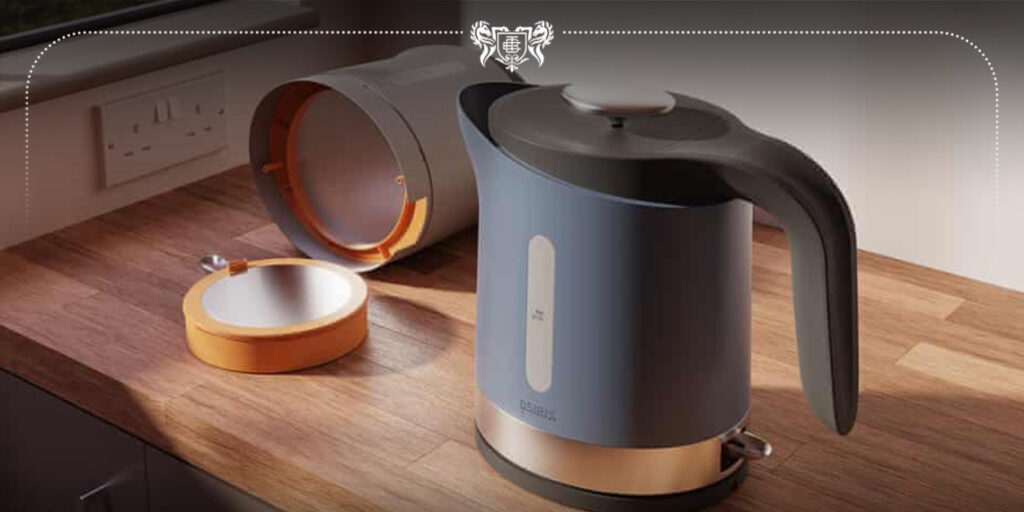Gabriel Kay, a recent graduate in industrial and product design from De Montfort University, has crafted a kettle unlike any other on the market. Unlike conventional models, the Osiris kettle is designed for easy repairability, allowing consumers to replace its removable electronics with just a screwdriver.
Kay, 22, emphasizes that while delving into electrical products is typically discouraged due to safety standards, the Osiris kettle separates potentially hazardous components, simplifying repairs to resemble changing a vacuum’s dust bag. “Everyone can relate to a kettle; it’s a familiar and comforting product,” Kay notes. “My aim is to make maintenance and product understanding accessible to all.”
The Osiris kettle has already garnered significant attention, winning awards from De Montfort University and the New Designers graduate showcase. Additionally, Kay has joined the Green Grads initiative, founded by design editor Barbara Chandler in 2021, which promotes innovative UK graduates with eco-friendly designs. His kettle will be featured at an upcoming Yorkton Workshops exhibition in London, alongside other sustainable inventions such as adaptable shoes by Lewis Broughton and a biocomposite made from rice straw by Yohaan Kukreja and Ankita Khanna.
Chandler praises the ingenuity of graduates like Kay, stating, “Repair and durability are crucial to reducing waste, and Gabriel’s kettle exemplifies this by offering easy and non-intimidating repairs.” Chandler emphasizes that while the EU reports 80% of consumers want repairable products, effective repair solutions must be simple and reassuring.
E-waste, defined as discarded electrical goods, poses a growing environmental crisis. According to the UN’s Global E-waste Monitor, electronic waste is increasing five times faster than recycling efforts, with recycling rates predicted to drop from 22.3% in 2022 to just 20% by 2030. Despite this urgent issue, many products remain non-repairable, and efforts to fix broken devices can void warranties. While the UK’s right-to-repair legislation, introduced in 2021, aims to address this, it has been criticized as insufficient. In 2020, the UK ranked as the second-largest producer of e-waste per capita globally, with much of it ending up in dumps in the global south, including Ghana.
Named after the Egyptian god of death and rebirth, the Osiris kettle symbolizes a renewed approach to product longevity. “Understanding how long products should last and maximizing their use can mitigate our impact on e-waste,” Kay explains. “Consciousness and awareness of our consumption habits are key.”
Although Kay’s Osiris kettle has not yet secured investment, interest in repairable electronics is growing. Successful examples like the repairable smartphone maker Fairphone and Suri, which achieved sales of over £10 million with its recyclable toothbrush in 2023, suggest a promising market. Kay remains optimistic, stating, “With the right regulations, repairable products could become standard, creating a perfect market for designs like mine.”


